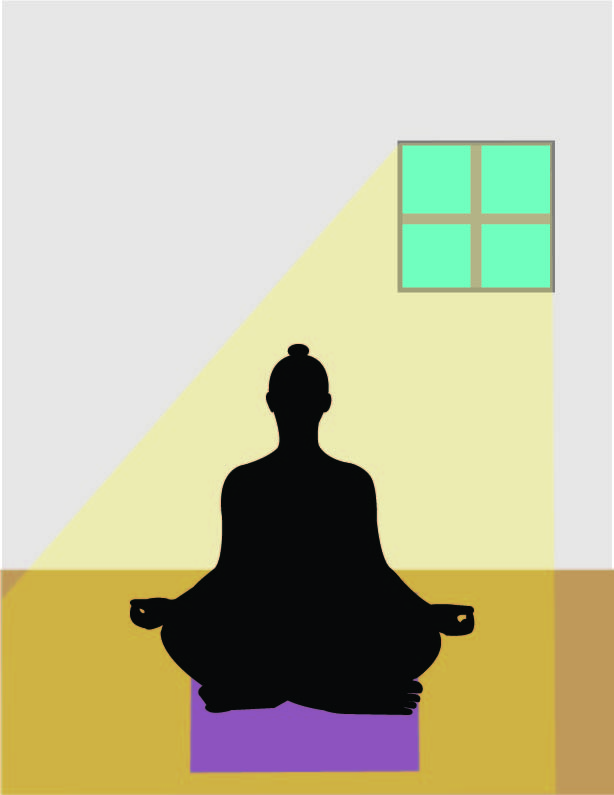The Benefits of Yoga and Meditation
May 18, 2022
Yoga and meditation are widely practiced today among all ages and people. They have gained popularity as effective and enjoyable hobbies, physical activities, and a rehabilitation service. Yoga has many healthy benefits for the body. It directly improves flexibility, strength and balance as well as relieves stress and pain for those struggling with health conditions. Poses stretch muscles and build endurance, as most of them are meant to be held for a certain amount of time. According to Hopkins Medicine, those who struggle with conditions such as arthritis are able “to ease some of the discomfort of tender, swollen joints” through yoga practices. Yoga usually moves at a slow pace, allowing for those with injuries to be able to safely and painlessly participate in rehabilitation. Another example of this is shared by NCBI, as they state, “While yoga is not a cure for a cancer, nor a definitive way of preventing it, yoga increases physical, emotional and spiritual wellness, and brings about a certain peace, of which many cancer patients desire.Yoga, breathing exercises, and meditation can reduce stress, promote healing, and enhance quality of life for patients with cancer.” Additionally, it can reduce blood sugar levels, helping those who suffer with non-insulin dependent diabetes. Yoga provides an outlet for stress and pain relief without medication. It focuses on slow and intentional breathing, relieving anxiety and resulting in a healthy heart. Junior Shelby Runje said that yoga “keeps you focused and helps with stress in games” with regard to how yoga affects athletes. Keeping your body stretched and strong, while also keeping your mind in tune, can greatly improve athletic ability.
Not only does yoga have many benefits for the body, but it also positively affects the mind. First, yoga and meditation can relieve anxiety and depression. Yoga requires focus and for participants to be present in the practice. The most important effect that yoga has on the mind is mindfulness. Through yoga, people are able to become more in tune with their lives and listen to their bodies. Practices are quiet and allow participants to escape from worries and responsibilities in their lives. Sophomore Sebastian Holden shared that he believes people who are mindful “are happier and nicer and are able to control their lives better.” Yoga focuses on paying attention to the body and recognizing what it needs, putting emphasis on how different parts feel while internalizing self-love and appreciation. This also ties back to yoga’s effects on the body, as regular practice can lead to weight loss through mindful eating. Since yoga makes you more mindful, you will in turn be more focused and attentive to your actions. Harvard says that “practicing yoga helps you be more aware how your body feels. This heightened awareness can carry over to mealtime as you savor each bite or sip, and note how food smells, tastes and feels in your mouth.” Instead of mindlessly eating, those who participate in yoga may be more aware of their actions and how they affect their bodies and minds. People are able to more closely focus on how their body feels and the reactions it produces from the ways you treat it. Additionally, yoga relaxes the body, leading to better sleep habits and routines. It is much harder to follow a healthy sleep regimine with a busy or disorganized mind. NCCIH conducted a study where “54 adults with chronic insomnia learned mindfulness-based stress reduction (MBSR), a form of MBSR specially adapted to deal with insomnia (mindfulness-based therapy for insomnia, or MBTI), or a self-monitoring program. Both meditation-based programs aided sleep, with MBTI providing a significantly greater reduction in insomnia severity compared with MBSR.” Sleep is very important to overall well-being and sets us up for successful and productive days ahead.
Even taking a few minutes a day to meditate can be extremely beneficial. It is important to dedicate time to yoga practice in order to start or end your day with good intentions. Everyone interviewed said that they would consider taking time everyday to engage in either meditation or yoga. Staff member Rebecca Ragland states that yoga gives you “an opportunity to center your breathing, mind, and body” and that it is “doing something for yourself.” Ragland sets about 15 minutes aside every morning to meditate. Senior Avery Morton also suggests to “take classes to make sure you are practicing correctly.” Mindfulness helps with many different aspects of life such as creating and maintaining relationships, making smart decisions, completing work, and overall confidence. Incorporating yoga and meditation into your daily life can strengthen all of these aspects of life and turn them into your reality. You can start by taking just a few minutes out of your day to sit and meditate, or join a yoga class to learn about how to start integrating the practice into your routine.


